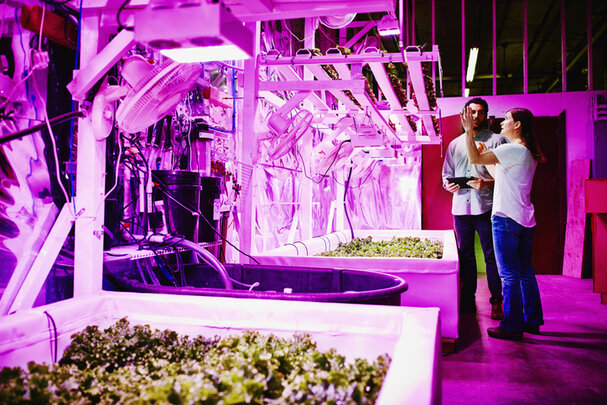
Credit: Thomas Barwick/Getty
How to choose the right PhD supervisor
4 red flags to be wary of in the search for a good match.
23 June 2020

Thomas Barwick/Getty
A PhD supervisor can make or break a candidate’s progress. It’s estimated that roughly half of all PhD candidates in North America do not complete their doctoral studies due to a lack of support from their supervisor.
“It’s a decision that should be taken very seriously,” says Anna Sverdlik, an educational psychologist at the University of Quebec in Montreal, Canada.
“This is the person you could be working with for several years and it can shape who you are as an academic.”
Below are four tips that can help PhD candidates choose a suitable supervisor, and the red flags to watch out for:
1. Interview the supervisor
While most candidates focus on trying to impress a prospective supervisor, Emma Beckett took the opposite approach when she was choosing between institutions for her PhD.
“I approached each meeting as if I were interviewing the supervisor, and not the other way around,” says Beckett, a molecular nutrition scientist at the University of Newcastle in New South Wales, Australia.
“Forget the power dynamic and remember it’s about what’s best for your development.”
Asking the right questions can give students a better sense of whether a supervisor is the best match for them, says Sverdlik, who studies motivation and wellbeing in doctoral students.
“Talk to them and see what kind of person they are,” she says. “Students are often too grateful when someone shows an interest, and this puts them at a disadvantage.”
Red flag: If a potential supervisor is difficult to pin down for a meeting, they are unlikely to treat their students as a priority down the line, says Beckett.
2. Get an outside perspective
Reaching out to former students, collaborators, and lab members can be a good way of forming an accurate view of a supervisor’s reputation, says Gerard Dericks from Oxford Brookes University in the United Kingdom, who studies PhD student satisfaction.
“You want to do a mini background check, as it’s difficult to tell how honest a researcher is during an interview.”
Speaking with former co-authors can also give candidates a better idea of how collaborative a supervisor is and how well their skills and research interests match, says Dericks.
Paying attention to how colleagues interact with the supervisor can also prevent candidates from entering a toxic situation.
Beckett says she experienced this first-hand at a lab meet-and-greet session when she was searching for a postdoc position. “Multiple students came knocking on the principal investigator’s door in tears,” she recalls. “That’s definitely a bad sign.”
Red flag: If a supervisor seems to prefer working alone or doesn’t include students as co-authors on their papers, it’s unlikely that they will help the candidate build their resumes, says Sverdlik.
3. Look beyond the PhD
Candidates should look for a supervisor who can help them develop the skills they need to progress in their career after completing their PhD, says Beckett.
“Too many students get caught up in the PhD topic or project, but it’s about building skills that can help you pivot into what you want to do next,” she says. “The outcome of a PhD is not about output, but who you are as a scientist.”
Sverdlik says that candidates should discuss professional development opportunities with potential supervisors, such as writing workshops, training in advanced statistics, and research integrity seminars.
Red flag: Too much emphasis on publishing papers can be a sign that the potential supervisor lacks integrity and isn’t focussed on helping their students’ skill development, says Beckett.
4. Consider the supervisor’s working style
Rather than choosing a supervisor for their prestige and research interests, Beckett says candidates should pay attention to the workplace culture and how things run day-to-day.
This can mean discussing expectations before committing to a potential supervisor, such as working hours, meeting frequency, and how the supervisor tracks their candidates’ progress, she says.
“Some students like to be micromanaged, while others prefer to do things in their own time,” says Beckett. “Finding out whether your day-to-day controls and procedures are compatible is a way of understanding their ‘big picture’ ethos without actually asking.”
Red flag: Prospective supervisors who expect candidates to work on weekends or be on-call outside of working hours are likely to be more interested in a student’s productivity than their growth and development, says Beckett.
